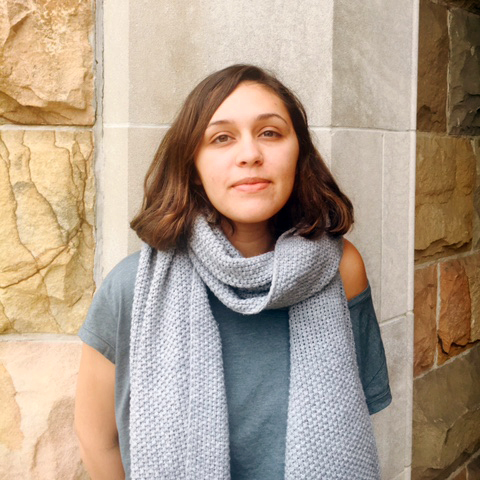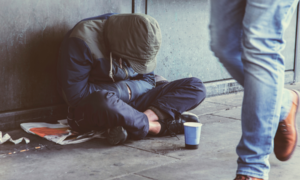 Sixth grade can be a tough time for pretty much anybody. It doesn’t help when your parents divorce right before the beginning of your middle school career and it leaves you, your mother and your sister homeless.
Sixth grade can be a tough time for pretty much anybody. It doesn’t help when your parents divorce right before the beginning of your middle school career and it leaves you, your mother and your sister homeless.
I’d leave school and go home to my mother’s friend’s couches, one-bedroom apartments where the three of us would squish in, quick showers, dirty laundry and lots and lots of crying.
School was my getaway, my chance to be in a routine, to know what was coming, to have a small sense of stability and control. But at 12 years old, I was convinced that my bad luck and misfortune were my own fault. My teachers did little to tell me otherwise.
I was a problem child who spoke too often, was never prepared, and I must have been getting busy with the young boys because “those curves just can’t belong to a girl with no experience,” teachers would whisper behind my back. It’s funny to realize those teachers were just middle school bullies who had gotten older.
And then there was the one who was convinced she’d break me down — the evil Mrs. Smith — but there is nothing stronger than the power of friendship and my greatest strength sat right in front of me. He was my shield.
Every day, Mrs. Smith turned to ask me the first question of the day, knowing good and well her class was the first of the morning and what that meant for me. It was only in that 60-minute period that I could bum pencils and paper from friends — friends who went home to parents who helped with homework, friends who ate more than frozen pizza and whatever you can find for evening meals.
And so here I am in class with no pencil being asked to divide my pain by eight the number of minutes I came into class late and multiply that number by three the number of hours of sleep I got after making sure Isabel, my little sister, was warm and then, “Go write it on the board.”
I took one look at that long walk towards the front of the class — did I start my period last night? We can’t afford pads. Mom told me to ask the nurse at school. I didn’t practice long division because after school we went back home to a Section 8 house with no internet, heating or cable. I held my mother while she begged God to come save us and Isabel played with her dolls in the other room. It was 8 p.m. and we were all tired. Isabel needed a bath and I needed to handwash something, anything for the next day.
“Eliana — board — now!” screams Mrs. Smith from somewhere in the room I can’t locate because my eyes are misty and I’m sniffling.
Maybe blood will drip from the back of my knees, maybe the stain on my shirt will be seen, maybe God will come down and work this problem out for me and I can give Mrs. Smith all the answers she hopes to beat out of me. This is when it happens. He opens his mouth to speak, and although he is as tall as I am sitting down when he stands up, he carries me. His blue eyes are wide and he knows all too well what will happen when he speaks.
“Mrs. Smith, I can-an-an-an do the problem-em. In fact, I want to do. Maaayyyyy I please-se-se come to the board in-in-instead?”
Everyone laughs at his stutter, but I am smiling because he is already halfway out of his seat, helping me find my way back to mine.
Nothing is stronger than friendship at 12 years old, Mrs. Smith. Not even your malice and spite.
Teachers, please know that the first day of school for all children is difficult, but for children facing homelessness, it can’t be harder to get them to explain why. Please do not rush into assumptions rooted in their potential apathy to your class subject. Please remember they may not able to afford pencils, or gas to go to Walmart to buy said pencils, or maybe their parents don’t understand the importance of school supplies, maybe their parents can’t afford to.
I longed so badly for a 30-minute period in the beginning of the school day to have the chance to read my syllabus and get prepared but I was always rushed into class, penalized for a tardiness I had no control over. Welcome your late kids in with kindness, with forgiveness, with compassion. How can we care for your class when we haven’t been taught to care for ourselves?
Remember, we can hear you, even when you think we can’t. We can. Be the type of person to us that you’d like to see us grow up to be.
Eliana Perozo, 22, a young leader with SchoolHouse Connection, is a senior at Sewanee: The University of the South. She pursues her interest in human rights while majoring in global studies and studying Spanish and creative writing.
For more youth perspectives on homelessness, read “Four College Students Share What it Was Like to be Homeless—and What they Learned from It.”































